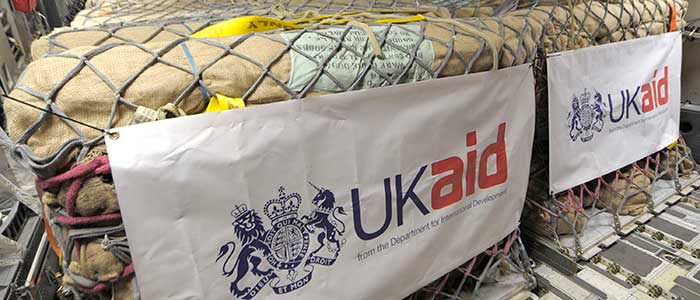In a report published today, MPs on the international development select committee highlighted how too many tight spending rules, cuts to administrative capacity and glaring absence of overall strategy, aside from driving value for money, could weigh on the effectiveness of UK aid.
This renewed push for results and value for money has been spearheaded by Priti Patel, the secretary of state for international development and a known aid sceptic who has in the past called for Dfid to be abolished.
Her appointment rocked the aid community and was read as a response to growing criticism of the size of the UK’s aid budget and its commitment to spend 0.7% of national income overseas.
Stephen Twigg, chair of the committee, highlighted however UK Aid’s “good work”, which has both a “life changing” impact overseas and serves the national interest.
Dfid should do more to publicise this to the public, he continued. While the committee said it was right Dfid works to show that every penny is spent as effectively as possible, its judgement may be being clouded by a focus on improving spending.
For instance, it said strict spending rules and targets on budget support, “non-fiscal” spending (this includes loans, equity investments and some contributions to multilateral development banks) and payment by results could in fact be “damaging to effective development and can lead to perverse outcomes”.
Dfid works best when it can be flexible, the report said, and should keep these targets under “constant review” and be willing to relax them when appropriate.
Meanwhile, other efforts to secure value seem to have yielded few gains. Despite two long reviews into the different ways Dfid channels its funds into developing countries, for example, the committee described Dfid’s method for finding a balance between different approaches as “arbitrary”.
A lack of overall strategy in a number of areas prevented the department from doing work in a “consistent and coherent manner”, it continued.
Likewise, the report urged the department to base its spending decisions on evidence rather than media coverage. The committee noted that Dfid had seemingly shut down a number of programmes in response to critical media reports, despite these being misleading and the programmes being innovative or effective.
The committee also raised issues of administrative capacity, which has fallen as the department strives for greater efficiency. In 2009, 2,500 Dfid staff managed a budget of £6.7bn (around £7.34bn in real terms). By 2015-16 this had risen to £9.9bn, but staff numbers were at an average of just 2,852.
As a result, the committee said Dfid was becoming more reliant on a small pool of external organisations, locking out more effective, smaller organisations, and was unable to manage its budget optimally.
Issues related to both capacity and strategy were “more important than ever” as the government moves to spending more UK aid through departments other than Dfid, noted Twigg.
A Dfid spokesperson said that saving lives in the context of unprecedented humanitarian crises depends on using UK aid in the most “effective and accountable way possible”.
“Britain’s place in the world is enhanced by our commitment to UK Aid but we should never shy away from delivering the tough messages of reform that will make a real difference on the ground.”














